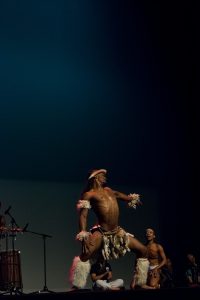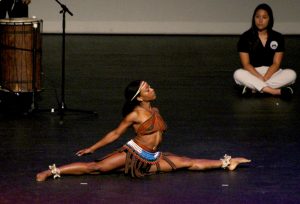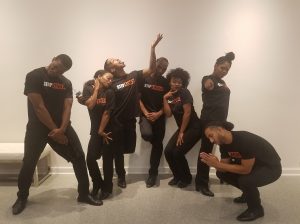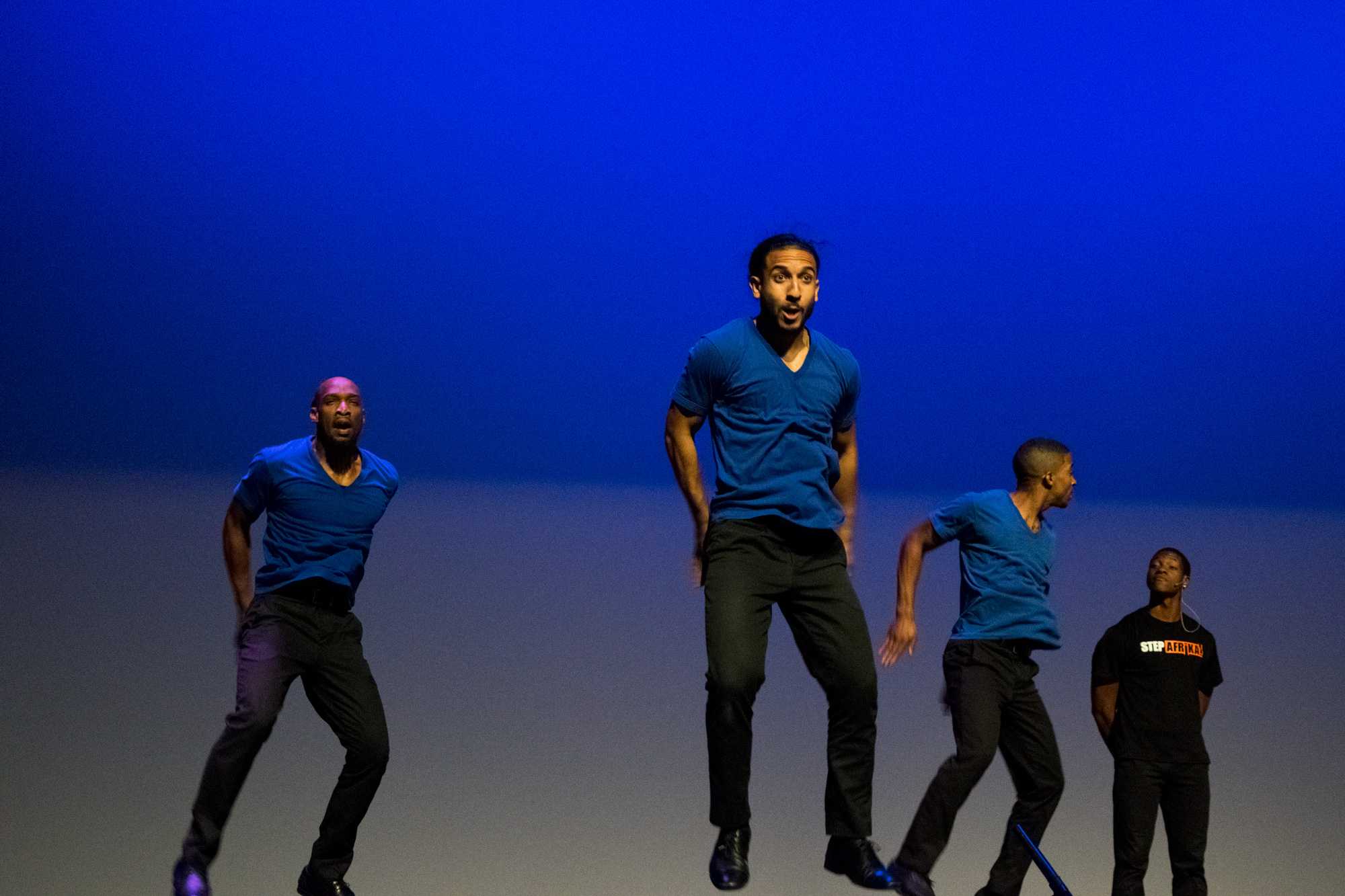The Step Afrika! dance company performed to a lively Schaefer Center audience on Monday night. Many viewers experienced the dance style known as stepping, a form of percussive dance which is the act of making sounds by stepping and clapping.
Step Afrika! was founded in 1994 by C. Brian Williams. It was the first major professional dance company dedicated to stepping, and has helped further legitimize and expand the art. Based out of Washington, D.C., Step Afrika!’s stated mission according to their website is to “promote an appreciation for stepping and its use as an educational, motivational and healthy tool for young people.”

In addition, it integrates the traditional music, dancing and garb of the Zulu people, and touches on the history of gumboot dancing, in which the harsh conditions of mineworkers are overshadowed by comic relief, as the miners mock their boss. Both of these styles originated independently in present-day South Africa.
To start the show, the crowd was led in a back-and-forth chant of “OK,” and “alright.” Throughout the night, the dancers guided the audience in raucous clapping and whooping. The performance prized audience engagement. During the show, at least a dozen children and young adults took to the stage to learn new moves and perform for the audience.
This free event was organized by Appalachian Popular Programming Society’s Cultural Awareness and Student Engagement Council, or CASE, the Office of Campus Activities and Appalachian State Summer Activities. CASE Chairperson Ana Dell explained that CASE focuses on “programs of inclusion.” When searching for cultural events to bring to campus, she said that the council seeks to “focus it around something that will represent the more marginalized communities at App.”
Dell said that by pooling funding between these three campus organizations, they were able to offer the event for free. She also said that when Step Afrika! performed two years ago, the student fee was $10 to get in and there was still a big turnout.
Appalachian State University is less racially diverse than other public higher education institutions in the state, despite administrative outreach efforts. Dell encouraged all students to attend cultural events on campus, including those that don’t necessarily represent them.
“I hope people will be able to be open to these different conversations,” Dell said.
Junior health care management major Pragathi Ranganathan came to the event because of her appreciation for dance and her unfamiliarity with stepping.

“I thought it was incredible. I thought the energy was so amazing and they’re a really, really talented group of individuals. I was entertained the entire time,” Ranganathan said.
As a nonprofit organization, Step Afrika! focuses on engaging young people and promoting positive values. It has worked with over 23,000 school children since its inception. Additionally, in 2015, Step Afrika! spent 75 percent of its income on program expenses, meaning that fundraising and administrative costs were kept to reasonable levels.
Performer Ta’Quez Whitted has been with Step Afrika! since late 2015. An Elizabeth City State University graduate, he is originally from Durham, North Carolina. Whitted has traveled to perform at venues across the United States as well as several foreign countries.
“Traveling has definitely been a great experience,” Whitted said. “I’ve been exposed to a lot, [and] got to see and meet lots of different people.”
In one act, female dancers faced off against male dancers. The crowd seemed, audibly, to pull for the women’s routine but eventually was told that neither team wins, but that the best performance happens when both teams work together. In their blue and red tops, the dancers combined forces, creating a better routine, executed without feeling overly sentimental.

Step Afrika! concluded its show by naming the performers, stepping mightily and involving the audience one last time, making music through clapping. The audience stood and cheered in large numbers and all of the dancers soon graciously moved to the lobby to talk with students, parents and children.
Check out theappalachianonline.com for videos of the event.
[embedyt] https://www.youtube.com/watch?v=fdkvfoq9s8A[/embedyt]
Story By: Patrick McCabe, Intern A&E Reporter
Photos By: Lindsay Vaughn, Senior Photographer, and Jessica Kolomichuck, Intern Photographer
Video By: Hayley Canal, Intern Videographer

